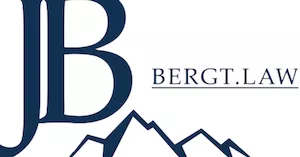- within Law Practice Management topic(s)
- with readers working within the Consumer Industries and Oil & Gas industries
Introduction
In a move that is both evolutionary in its policy intent and revolutionary in its operational consequences, the European Union's reform of MiFIR and MiFID II—adopted at EU level and already in force there—now cascades into Liechtenstein via a comprehensive legislative package that amends the Securities Services Act, the Investment Firms Act, the Asset Management Act, the Trading Venue and Stock Exchange Act, and the Financial Market Authority Act, thereby aligning the Principality's framework with the EU's drive toward deeper market transparency, standardized data quality, and investor-centric execution outcomes.
The policy arc: from EU reform to EEA transposition—and into Liechtenstein law
At the EU level, the latest amendments—Regulation (EU) 2024/791 (MiFIR) and Directive (EU) 2024/790 (MiFID II)—seek to cure persistent market-data fragmentation and execution frictions by making consolidated market data accessible at scale, by tightening the quality and timing of post-trade publication, and by strengthening the informational backbone on which retail and professional investors alike rely; these acts were adopted in the EU and took effect there in late March 2024.
Liechtenstein's government has tabled a bill that implements these measures across core statutes—Securities Services (WPDG), Investment Firms (WPFG), Asset Management (VVG), and the Trading Venue & Stock Exchange Act (HPBG)—with consequential adjustments to the FMA Act and related laws, underlining both the breadth of the reform and its integrated supervisory logic.
Because Liechtenstein transposes EU financial-market law via the EEA channel, timing nuances matter: the Directive must be implemented by EU Member States by 29 September 2025, while for EEA/EFTA States the operative date is tied to the EEA Joint Committee's incorporation decision; once incorporated, the MiFIR changes will apply directly, and national amendments will align the surrounding legislative ecosystem. Certain Liechtenstein provisions are scheduled with specific start dates (including measures slated for 1 February 2026), which makes early planning more than prudent—it makes it commercially necessary.
The operational core: six change-clusters you cannot ignore
1) Payment-for-Order-Flow (PFOF) is out—full stop
The MiFIR amendments introduce a clear prohibition on accepting inducements for routing client orders (payment for order flow), removing legacy carve-outs and pushing firms toward conflict-free execution policies; Liechtenstein will mirror that ban and couple it with sanctions for non-compliance. Immediate impacts include renegotiation of any rebates with execution venues or internalizers, revisions to best-execution policies, and updated client disclosures.
2) "One trade, one APA" — no duplicates, no gaps
A new rule requires that each transaction be published once through a single Approved Publication Arrangement (APA). This seemingly simple sentence is systems-heavy: trading desks, post-trade teams, and middle-office controls must ensure no duplicative reporting and no missed prints, with sanctions explicitly envisaged for breaches.
3) Consolidated Tape readiness and time-synchronization
The reform is built around an EU-level consolidated tape to aggregate pre-/post-trade data; to make that viable, trading venues and data contributors must deliver higher-grade data, consistently time-stamped, with clock synchronization now anchored directly in MiFIR rather than MiFID II. Trading venues (regulated markets, MTFs/OTFs) should validate timestamp precision, gateway latency, and reference clock drift.
4) Best-execution reporting is re-scoped
The old annual "top five venues" report (the RTS 28-style publication) is repealed, with the policy expectation that a functioning consolidated tape will supply the market-wide evidence base; firms must revise their public disclosures and internal MI accordingly, while preserving robust, data-driven best-execution assessments.
5) Direct Electronic Access (DEA) and the third-country level-playing field
DEA providers must be authorized firms and must police client compliance with venue and algorithmic-trading rules; given the efficacy of DEA gatekeeping, some duplicative authorization expectations fall away, and the reforms harmonize competition between EEA-resident users and third-country users accessing EEA venues via DEA. Governance, kill-switches, and surveillance capabilities remain non-negotiable.
6) Tied agents: due diligence, registry mechanics, and data protection
Firms exercising the "tied agent" option must (i) run pre-appointment and periodic (at least triennial) fitness and propriety checks, (ii) keep the register tight (including FMA notifications and deletion if conditions lapse), and (iii) handle sensitive personal-data processing for these checks under the clarified statutory basis. Compliance should update onboarding questionnaires, evidence packs, and register governance.
Who is in scope—and why crypto/security-token players should care
The package touches banks and investment firms, trading venues and data publishers, wealth/asset managers under the VVG, and intermediaries relying on tied agents; moreover, platforms that tokenize traditional securities or list security-token instruments within an MTF/OTF perimeter should recognize that, where a token qualifies as a financial instrument, the MiFID/MiFIR machinery—including the new tape, the PFOF prohibition, and APA publication—applies to them with the same intensity as to conventional equity or bond trading. The government's dossier confirms the broad statutory canvass being amended to implement the EU measures in Liechtenstein.
Sanctions, supervisory expectations, and adjacent clean-ups
The Liechtenstein bill pairs the substantive changes with explicit sanctioning hooks—for example, for failures to publish through a single APA or for breaches of the PFOF ban—allocating enforcement across banking and investment-firm statutes to avoid overlaps, while also migrating certain operational details (e.g., clock synchronization) from MiFID II into MiFIR to keep obligations directly applicable once EEA-incorporated. The package also tidies adjacent acts (e.g., residential-mortgage exceptions, fee schedules, timing harmonizations), minimizing interpretive gaps.
What to do now—an execution-minded roadmap
- Contract and policy remediation: strip PFOF economics, update order-routing governance, refresh client disclosures and conflicts registers.
- Post-trade controls: build "one-trade-one-APA" logic, implement duplicate-detection and exception workflows, and align with the venue's publication SLAs.
- Data & infrastructure: harden timestamp pipelines and reference-clock synchronization; audit data quality for consolidated-tape readiness.
- Best-execution MI: retire legacy venue-top-five reports; replace with consolidated-tape-driven analytics and more granular client-outcome metrics.
- DEA governance: re-affirm authorization perimeter, monitor third-country access symmetries, and test algorithmic controls.
- Tied-agent oversight: formalize pre-hire checks, three-year re-checks, FMA notifications and registry deletions; confirm the lawful basis for processing sensitive data.
Bergt Law blends regulatory depth with founder-level pragmatism: we help banks, brokers, asset managers, and tokenization ventures conduct gap analyses, redesign policies and client communications, renegotiate venue and data contracts, and sequence implementation against EEA timetables—so you can defend investor outcomes without sacrificing commercial velocity. To discuss an implementation plan tailored to your group, connect with our team at bergt.law/en.
Sources: Report And Motion By The Government To The Principality Of Liechtenstein Concerning The Amendment Of The Securities Services Act, The Securities Firms Act, The Asset Management Act, The Trading Place And Stock Exchange Act, And Other Acts No. 61/2025.
Executive Summary:
- PFOF prohibition: inducements for order routing are banned; firms must remove related economics and realign best-execution governance.
- Single-APA publication: each trade must be published once via one APA, with enforcement teeth attached.
- Consolidated tape & timestamps: data-quality and time-sync duties shift squarely into MiFIR to enable an EU-level tape; venues and contributors must upgrade processes.
- Best-execution reporting reset: the legacy "top five venues" report is withdrawn; firms should pivot to tape-driven analytics for evidence of execution quality.
- DEA framework clarified: authorization and client-control duties stay robust, with a more even footing between EEA and third-country users accessing EEA venues.
- Tied agents under closer scrutiny: pre-appointment and periodic checks, registry discipline, and a clear data-protection basis are embedded in law.
- Timing matters: EU measures took effect there in March 2024; EEA incorporation governs Liechtenstein applicability, with specific national start dates (incl. 1 Feb 2026) for certain provisions.
The content of this article is intended to provide a general guide to the subject matter. Specialist advice should be sought about your specific circumstances.


